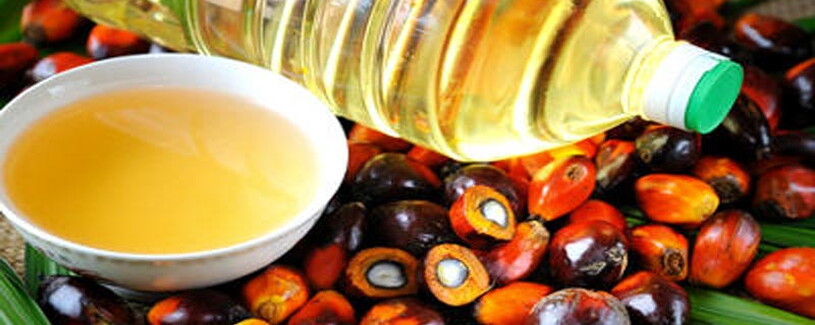Golden Agri Resources and Sustainability

While the use of palm oil has been documented since ancient times, it is only in the past few decades that this tropical product has taken off in the international market. An invisible component of many products, palm oil can be found in cookies, in chocolates, in soaps, in shampoos, and even in biofuel. This wide range of uses has stimulated cultivation and oil extraction; annual global production has increased more than nine-fold since 1980. By the 2000s, palm oil had become the most heavily traded edible oil in the world.
Golden Agri Resources (GAR) has been in the forefront of this palm oil boom in Indonesia. Founded in 1996 by the influential Widjaja family (operators of the Sinar Mas business group), GAR became the holding company for the family’s agribusinesses, including its Indonesian subsidiary PT SMART. The company has assembled an array of assets through the entire palm oil value chain, from growing seedlings and managing over 450,000 hectares of plantation lands to running extraction and refining mills and marketing its own brand of cooking oil. While GAR is headquartered in Singapore, the company’s palm plantations and much of its processing facilities were in Indonesia. By 2009, the expansion of GAR and other companies had made Indonesia the world’s leading exporter of crude palm oil.
The palm oil boom, however, concerned environmentalists. Palm oil plantations had been carved out of precious rainforest and peat land, resulting in the release of carbon into the atmosphere and the loss of habitat for rare rainforest species. Some palm plantations were created through slash and burn agriculture – fires in Indonesia in 1997-98 created dense smoke that choked a large portion of Southeast Asia for months.
Responding to findings by scientists that linked palm oil plantations to deforestation, Greenpeace, a global environmental NGO, began campaigning in 2005 to save the Indonesian rainforest. The group targeted GAR as Indonesia’s leading palm oil firm and issued reports criticizing the practices of the company. Greenpeace’s campaign took off in 2010, when the organization targeted a GAR customer, Nestlé, with a report and a provocative video that went viral on social media sites. Nestlé quickly bowed to the demands of Greenpeace and dropped GAR as a supplier. Unilever had already canceled its contracts with GAR, and Burger King followed suit.
GAR initially responded to Greenpeace’s charges by commissioning reports and issuing press releases denying the group’s allegations. However, in negotiations brokered by The Forest Trust, another environmental NGO, GAR sat down with Greenpeace and in often tense meetings hammered out an agreement that set forth guidelines for operating the company without contributing to deforestation.
When GAR’s new guidelines were announced in 2011, many observers, including Greenpeace, hailed the commitments as setting a new standard in sustainable palm oil production. Besides committing not to plant on any land that was primary forest, GAR agreed to tough bans on cultivating palms on high carbon stock (HCS) forest and peat land – commitments that made the company a leader in the fight against deforestation. The company also agreed to third-party verification of its operations. Both Nestlé and Unilever returned as customers.
GAR and Greenpeace hoped that GAR’s commitments would spur other companies and environmental groups to embrace higher standards. But in 2013, obstacles to this goal remained. The Roundtable for Sustainable Palm Oil (RSPO), an industry group of producers and palm oil customers, was promulgating a "sustainable" palm oil standard that Greenpeace and other environmentalists believed would allow substantial deforestation. Worse still, the supply of RSPO-certified sustainable palm oil was greater than the demand for this product.
Meanwhile, the Indonesian government was trying hard to balance environmental concerns with economic development. Palm oil was an important economic lever in rural development. To better accommodate the interest of small palm oil farmers, the Indonesian government created its own certification organization, the ISPO, which many argued had even lower standards than the RSPO. Local communities within Indonesia had a mixed relationship with large palm oil companies. On one hand some were resistant to letting plantations set aside land for conservation, since they wanted to maximize opportunities for small farmers. On the other hand, many communities had been in conflict with the companies since their concessions abrogated traditional land claims.
GAR was proud of its position as a sustainable palm oil company, but the company had to consider its commitments in light of the competitive and regulatory environment of the countries in which it operated. The company’s leadership had described the agreement with Greenpeace as important, but argued that the compact had not significantly altered the way the company did business, since the company "had sustainability in its blood." GAR also downplayed the importance of the differences among the standards to which it had committed with Greenpeace, those promulgated by the RSPO, and those that were being considered by ISPO. Company officials described each standard-setting organization as a forum where ideas could be shared and a consensus forged. GAR had committed to having all of its palm oil certified by the RSPO by 2015 and participating in the organization’s discussions. It was working with the Indonesian government to frame the requirements for ISPO.
But would GAR’s conciliatory approach to working with so many groups be sufficient to satisfy all of the stakeholders? Or would the company have to take sides in an environment where groups held such markedly different positions?
Developed in partnership with the National University of Singapore Business School